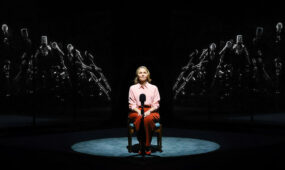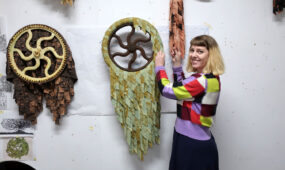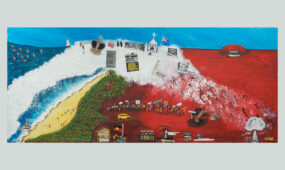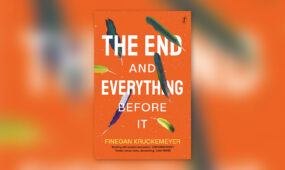In defence of artistic excellence
InReview
Australia has had decades of dumbing down, where mediocrity trumps excellence, and Rainer Jozeps is tired of it.

We demand excellence from our pilots, doctors and surgeons, building, bridge and software engineers, and other trusted specialists in our first world of fortune. We expect these as a given, while not demanding the same of bureaucrats, business leaders, politicians and their advisers; to accept anything less is abhorrent. Yes, abhorrent.
Excellence is, in and of itself, beautiful and necessary.
Harvard cognitive psychologist Steven Pinker, in his book Enlightenment Now (Penguin Books, 2018), argues that politically correct causes usually go too far. He states that movements to address injustices begin with good motives, and at some point, mollify and even fix the matter at hand. But then, over time, inheriting protagonists over-reach and proceed to harm the very issue their forebears sought to address in the first place.
Creative, intellectual and scientific excellence in Australia have all suffered at the hands of this dynamic since the late 1970s. Arts funding orthodoxy from all governments’ first decade of public subsidy argued that the pursuit of excellence as well as innovation should be the over-riding eligibility criteria for public subsidy.
By the early 1980s the intellectual left had taken over, cowing the right and subduing the of-excellence ‘elitists’; the argument being that mainstream art was only available to rich liberals, while all taxpayers were, ipso facto, arts funders. Everyone bought the story. And to be sure, on the innovation side, quite a few in the arts and academic worlds were indulging themselves.
There came a flurry of ‘artists’ of the self-conferred-titled type, with some ability but little gift or talent, winning grants and forming companies.
This new correctness ushered in the era of participation certificates, emerging artist awards and social reformist, community-arts performers foisting themselves on the hapless and disadvantaged. Thankfully we see less of this today, but the legacy-memory of this era in the community’s perception of the performing arts remains.
Australians have an uneasy relationship with excellence.
Our beautiful egalitarianism, nee tall poppy syndrome, wants to see high achievement in all we do, but we’re not sure if it should come at the cost of having to put up with smart-arse, up-your-bum pompousness.
We do admire those who achieve ‘great’ things; these are rarely – if ever – achieved to the exclusion of technical excellence combined with a natural talent or ‘gift’.
Rather than an economy, we are – first and foremost – a society.
There are athletes, performing artists, scientists and intellectuals who, through technical mastery (practice) plus individual giftedness, make the complex and difficult seem comprehensible. They bring new light – not witnessed before – to something we thought we knew. They have a natural gift for, and mastery of, the technical requirements in what they do.
When mastery and gift come together they are often described as sublime. Think Joan Sutherland, Tim Minchin or Graeme Murphy, think Eddie Betts or Cyril Rioli, think Natsuko Yoshimoto, Basil Hetzel or JM Coetzee.
We all need to make effort, read and respect scholarship, broaden our minds, and gain the knowledge to understand and appreciate their efforts. These and many other great achievers have the power to take our breath away with what they know and what they can do.
We need to be educated sufficiently to be able to recognise and respect excellence when it is present. And here I am nothing but partisan.
South Australia has an orchestra of 75 elite-level musicians. Of this country’s six symphony orchestras, the ASO is the least funded, while in 2013 it was rated second best in a national ‘blind listening-test’.
Adelaide also has the Australian String Quartet, comprised of four young, elite musicians who are celebrated around the world.
It’s not possible to play Beethoven, Sibelius or Shostakovich if you are not of excellence. There is simply nowhere to hide when these and other masters are played; the audience, like success-hungry sports followers, will quickly call out any ensemble if they play with anything but timeless excellence.
All this while Adelaide is the only city in Australia that does not have a concert hall for its music community. The ASO, ASQ and other major arts institutions in Adelaide must be adequately supported by government and the public.
Bureaucrats and politicians value excellence for its utilitarian potential. Motivation begets outcome. If economic value is the reason to support excellence, be it a concert hall, a new art gallery or Aboriginal collection exhibition space, then integrity will always come second to compromise.

Get InReview in your inbox – free each Saturday. Local arts and culture – covered.
Thanks for signing up to the InReview newsletter.
Rather than an economy, we are – first and foremost – a society. We need our decision-makers to push back on this squeamishness about excellence and show wisdom, if not elite-level thinking. They, and we, must once again value the intellectual, scientific and artistic excellence that resides within for its ability to show who we really are.
Rainer Jozeps has been an executive in Australia’s arts industry for more 30 years. He has held senior roles with the Australian Elizabethan Theatre Trust, Adelaide Festival Centre, West Australian Ballet, Australian Dance Theatre and Adelaide Symphony Orchestra.
Support local arts journalism
Your support will help us continue the important work of InReview in publishing free professional journalism that celebrates, interrogates and amplifies arts and culture in South Australia.
Donate Here






Comments
Show comments Hide comments